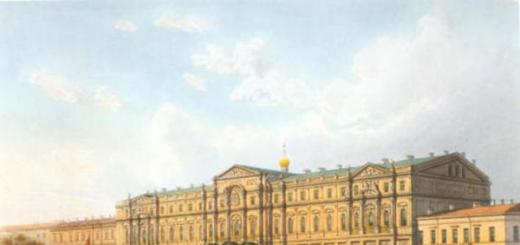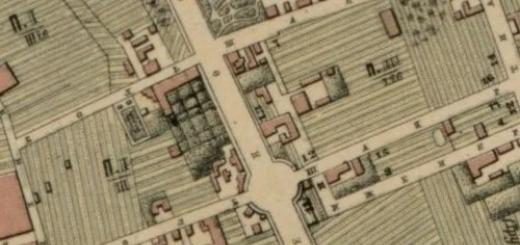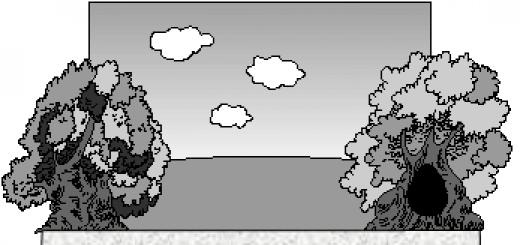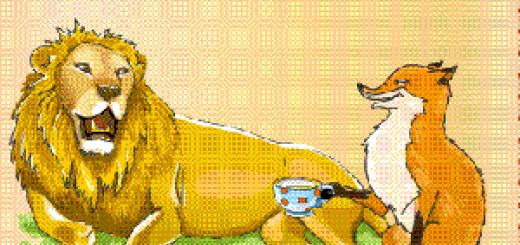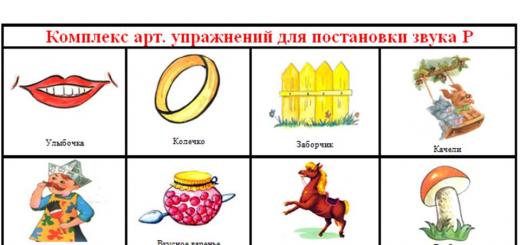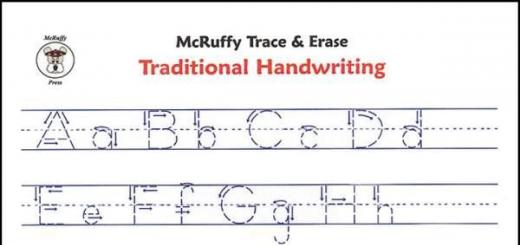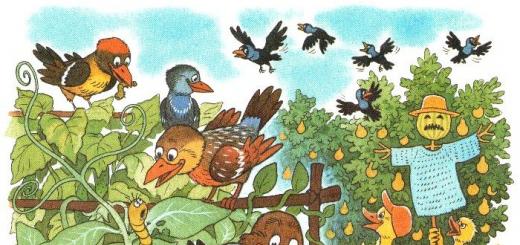The main characters of the story Stationmaster"and their characteristics
- Samson Vyrin. Stationmaster, kind, talkative, humble, trusting. With grief, he turned into a drunkard and died.
- Dunya Vyrina. Daughter of Samson. She left for her dream in St. Petersburg and forgot about her father.
- Captain Minsky. A hussar, a frivolous rake, but a man who keeps his word. Indifferent and callous.
- Insignificant stationmaster
- First meeting with Vyrin and Dunya
- How aged Vyrin
- visiting hussar
- Fake sickness.
- The kidnapping of a young beauty
- Samson Vyrin's disease
- Walk to the capital
- Visiting Minsky
- Bribe
- Vyrin finds his daughter
- Vyrin gets drunk
- Third visit of the narrator
- lady at the grave
- The author meets Vyrin and remains in awe of his daughter Dunya.
- The author again comes to Vyrin and does not recognize the aged caretaker.
- A handsome hussar pretends to be sick and takes Dunya away.
- Vyrin finds Minsky in St. Petersburg and he gives him money.
- Vyrin sees his daughter, but Minsky puts him out the door.
- Vyrin dies, and a lady with three children comes to his grave and sheds bitter tears.
Any person deserves respect, regardless of his position and work.
What does the story "The Stationmaster" teach?
The story teaches to be kind and sympathetic to all people without exception. It teaches to respect a person simply for being a person, not to divide people into big and small. It teaches you to always remember your parents and not forget them either in sorrow or in joy.
Feedback on the story "The Stationmaster"
I really enjoyed this touching story. In it, Pushkin touched on the topic little man and his place in society. But the author also touched upon the problem of relationships between parents and children. It seems to me that the author deliberately did not single out positive and negative characters in the story, because in every person one can find both good and bad.
Proverbs for the story "The Stationmaster"
Honor your parents - you will not go astray from the true path.
A good father has good children.
With children grief, and without them twice.
Life is a science, it teaches by experience.
Alive parents - read, died - remember.
To read summary, brief retelling"The Stationmaster" story
There is no more insignificant and unfortunate person in the world than the stationmaster. Every passer-by offends him, scolds him, and he has to do his job in any weather, serve and please everyone.
Once, then still a young narrator, he happened to be visiting a stationmaster. He called his daughter and a charming blue-eyed beauty of fourteen put a samovar in front of the author.
The guest looked at the pictures depicting the biblical parable of the prodigal son for a long time, and kissed Dunya goodbye.
Three or four years later, the narrator again found himself passing through those places. He went to Samson Vyrin's and did not recognize the caretaker. The once peppy and fresh fifty-year-old man suddenly turned into a wrinkled, bent old man. The narrator asked about Dunya, but Vyrin only shook his head sadly.
However, after some time, Vyrin himself began to talk about how he raised Dunya, how he could not get enough of her, how much he loved her and spoiled her.
And then one day an angry hussar stopped at their house. The hussar even pulled out his whip, but then Dunya ran in and asked if the guest would like to dine. Her appearance made the most favorable impression and the hussar changed his anger to mercy. He ate heartily, and in the evening he fell ill.
Every hour the hussar grew worse and the next day he even had to send for a doctor. Dunya did not leave the hussar all day and looked after the sick as best she could.
A German doctor arrived and, after examining the patient, said that he needed two days of calm and everything would be fine. He and the hussar dined cheerfully and heartily.
A day later, the hussar recovered completely and prepared to leave. They gave him a wagon and the hussar offered Dunya to take her to the church, the girl was just about to go to mass. Dunya seemed to be at a loss, but Vyrin himself told her to get into the wagon. Then he reproached himself many times for this gullibility.
Very soon, Vyrin's heart ached and he went to church. There he was told that Dunya did not come. The poor father waited with hope for the return of the coachman, but when he arrived, he said only one thing, that Dunya had gone further along with the hussar.
Vyrin fell ill and was treated by the same German doctor. The doctor admitted to Vyrin that the hussar was perfectly healthy, and he had to lie in order not to taste the whip.
When Vyrin recovered, he learned from the postmaster that the hussar's name was Captain Minsky and that he was going to Petersburg. Vyrin decided to find the captain at all costs.
He arrived in St. Petersburg and quickly found out that Minsky lived in a tavern. Vyrin went to him. The footman said that the master did not receive until eleven, and Vyrin came at the indicated time. Minsky came out to him and did not immediately recognize him, but when he recognized him, he flared up. And Vyrin began to ask to return Dunya to him, with which, according to him, the captain had fun.
But Minsky began to assure the old man that he had only honest intentions and would make Dunya happy. He slipped Vyrin a package and escorted him out the door.
On the street, Vyrin saw several paper banknotes and, in a fever, threw them on the ground. Then he returned, but the money was gone. Vyrin decided to see Dunya. He again went to Minsky, but the lackey simply kicked him out.
That same evening, after holding a prayer service, Vyrin saw Minsky enter a large three-story house. He talked with the coachman and found out that Dunya definitely lives in this house on the second floor. Vyrin entered the house and asked the maid if Avdotya Samsonovna was at home. She did not want to let him in, but Vyrin entered the apartment anyway. He passed two rooms and stopped at a third. There he saw his daughter dressed in the most fashionable clothes. She sat on the back of an armchair and wound Minsky's black curls around her finger. Dunya seemed completely happy, and Vyrin admired her. He had never seen a daughter so beautiful.
But then Dunya looked up and fainted with a cry. Enraged, Minsky pushed the old man out the door with a firm hand.
The friend advised Vyrin to complain, but he only waved his hand. He returned to his place and lived alone for the third year. Most of all, Vyrin was tormented by the thought that Minsky, having played enough with Dunya, could leave her. He imagined how Dunya was sweeping the streets along with the tavern hut.
This story touched the narrator very much and he thought a lot about the fate of Dunya.
He recently passed by again. The station was destroyed and no one knew anything about the fate of the caretaker. Then the narrator went to that very village and found that the brewer and his wife now live in Vyrin's house. They said that Vyrin drank himself and died. The narrator asked to be taken to Vyrin's grave, and the brewer called out to Vanka.
On the way, Vanka said that he knew his grandfather well and that he taught him how to cut pipes. And then he said that recently a young lady had come to him in a huge carriage with three children, a nurse and a black dog. Upon learning that the caretaker had died, she left the children in the carriage and went to the cemetery.
Vanka led the narrator to Vyrin's grave and added that the lady then lay down at the grave and lay there for a long time. And then she gave money to the priest and he, Vanka, also gave a nickel.
The narrator also gave the boy a penny and did not regret the money spent on the trip.
Drawings and illustrations for the story "The Stationmaster"
Pushkin's story "The Stationmaster" is one of the saddest works from the cycle of "Belkin's Tales", ending with a tragic ending. A thoughtful analysis of the work shows that the dramatic separation of relatives that happened is an inevitable problem of class differences, and the main idea of the story is the spiritual discrepancy between father and daughter. We invite you to familiarize yourself with brief analysis lead Pushkin according to plan. The material can be used in preparation for a literature lesson in grade 7.
Brief analysis
Year of writing– 1830
History of creation– The story was created in the Boldin autumn, this period became the most fruitful for the writer.
Topic– From this work, the theme of disadvantaged people begins to be revealed in Russian literature.
Composition- The composition of the story is built with generally accepted literary canons, gradually the action reaches a climax, and moves on to the denouement.
genre- The story.
Direction- Sentimentalism and realism.
History of creation
In the year of writing The Stationmaster, Pushkin urgently needed to resolve his financial issues, for which he went to the family estate. In 1830, a cholera epidemic began, which delayed the writer for the whole autumn. Pushkin himself believed that it would be a boring and long pastime, but suddenly inspiration descended on the writer, and he began writing Belkin's Tales. This is how the story of the creation of the “Station Master” happened, which was ready by mid-September. The time of the “Boldino autumn” was truly golden for the author, the stories came out from under the pen one by one, and the next year they were published. Under the real name of the author, Belkin's Tale was republished in 1834.
Topic
After analyzing the work in The Stationmaster, the multifaceted thematic content of this short story is revealed.
The main characters of the story father and daughter, and eternal theme fathers and children runs throughout the story. The father, a man of the old school, loves his daughter very much, the purpose of his life is to protect her from all life's adversities. Daughter Dunya, unlike her father, already thinks differently, in a new way. She wants to destroy the prevailing stereotypes, and break free, from the gray, everyday life. village life, in Big city sparkling with bright lights. Her crazy idea suddenly turns into reality, and she easily leaves her father, leaving with the first candidate to possess her.
In Dunya's escape from his father's house, the theme of romantic passion slips through. Dunya understands that the caretaker will be against such a decision, but, in the pursuit of happiness, the girl does not even try to resist Minsky's act, and resignedly follows him.
In Pushkin's story, in addition to the main love theme, the author touched upon other problems of society that existed at that time. "little man" theme concerns the plight of minor employees who are considered servants and are treated accordingly. In this regard, to such employees, there is the meaning of the title of the story, generalizing all the "little people" with a common fate and a difficult lot.
Deeply revealed in the story issues moral relations, revealed the psychology of each of the characters, their point of view, and what for each of them is the essence of existence. In pursuit of his illusory happiness, Dunya puts his personal interests first, forgets about his own father, who is ready for anything for his beloved daughter. Minsky has a completely different psychology. This is a rich man who is not used to denying himself anything, and taking his young daughter from his father's house is his next whim for him. The conclusion suggests itself that each person acts according to his desires, and it is good if these desires are subject to reason, because otherwise they lead to a dramatic outcome.
The theme of "The Stationmaster" is multifaceted, and many of the problems covered in this story are still relevant. What Pushkin's work teaches still happens everywhere, and a person's life depends only on himself.
Composition
The events of the story are presented from the point of view of an outside observer who learned about this story from its participants and witnesses.
The story begins with a description of the profession of station employees, about the dismissive attitude towards them. Further, the story moves on to the main part, in which the narrator meets the main characters, Samson Vyrin, and his daughter Dunya.
Arriving at the same station for the second time, the narrator learns from old man Vyrin about the fate of his daughter. Using various artistic means, in this case, the popular prints depicting the return of the prodigal son, the writer skillfully conveys all the pain and despair of an elderly person, all his thoughts and sufferings, a man who was abandoned by his beloved daughter.
The third arrival of the narrator is the epilogue of this story, which ended in a tragic denouement. Samson Vyrin could not survive the betrayal of his daughter, anxiety for her fate, constant worries, had too much effect on the caretaker. He began to drink, and soon died without waiting for the return of his daughter. Dunya came, cried at her father's grave, and left again.
main characters
genre
The writer himself calls his work a story, although each creation from the famous Belkin Tales cycle can be attributed to the genre of a small novel, their psychological content is so deep. In the sentimental story "The Stationmaster" the main motives of realism are clearly visible, it looks so believable main character who could actually meet.
This story is the first work that begins the theme of "little people" in Russian literature. Pushkin authentically describes the life and life of such people, necessary, but invisible. People who can be insulted and humiliated with impunity, without thinking at all that they are living people who have a heart and soul, who, like everyone else, can feel and suffer.
Artwork test
Analysis Rating
Average rating: 4.4. Total ratings received: 892.
To understand what the story “The Stationmaster” by A. S. Pushkin teaches, you need to analyze the work from the point of view of the ideological meaning and get acquainted with the history of the creation of this story. The literary text tells a very touching and sad story about a man of low rank who lost his beloved daughter, the meaning of his whole life, which caused his “fall”, death.
The idea of the work
The work of A.S. Pushkin is not only a story about family values, human affection, respect for parents and social inequality. This story teaches to respect parents, to appreciate them while they are alive, to be grateful.
Samson Vyrin saw the meaning of life in raising his daughter Dunya. She created comfort, easily coped with the household, was the pride of her father, his joy. The father does not hide his pride in his daughter: she is smart, beautiful, modest and obedient.
However, the little world created in the stationmaster's house collapses one day when Dunya escapes with the hussar Minsky. Without asking for her father's blessing, without saying goodbye, without explaining herself, she disappears from her home.
The fate of the protagonist
Uncertainty and anxiety for the fate of his daughter drives Samson Vyrin crazy. He makes several attempts to meet Dunya, his heart is breaking from longing and worries about her fate. The father never has to meet his daughter, she does not want to see him, or is ashamed of her act. In a few years, a vigorous and strong man turns into an old man. The hero becomes an inveterate drunkard, not finding a reason to hold on to life and not seeing the point in further existence. Minsky's humiliating attitude towards him, the money he gives to Vyrin - all this is low and vulgar, because Samson, as a father, has the right to meet his daughter.
The long-awaited meeting never happened during her lifetime, Dunya came to her father's grave a year after his death. The author shows the hopelessness and tragedy of the situation, emphasizing the impossibility of correcting the mistake.
In this story, A. S. Pushkin tells a story from the life of an ordinary stationmaster - Samson Vyrin. The author describes his difficult fate. In any weather, not knowing rest, he is forced to work and endure the humiliation of travelers who take out all the accumulated anger and annoyance on him.
Threats and curses fall on his head, and he, being a peaceful and modest person, dutifully endures these bullying.
The caretaker's joy is his daughter Dunya, a beauty and helper. Even the most angry guest, seeing her, softens and begins to conduct kind, sincere conversations.
One day, the hussar Minsky drives up to their station. He is fascinated by Dunya and pretending to be sick spends several days with them. Going on the road, he offers to give the girl a lift to the church, Samson, finding nothing wrong in this, lets his daughter go.
Without waiting for her, he goes to church, but does not find the girl there. The caretaker learns that Dunya has gone with the hussar to Petersburg.
The heartbroken father goes to the hussar, but he replies that Dunya loves him and will stay with him.
The author conveys to the reader the suffering of the caretaker. In just a couple of three years, he turns from a fresh and cheerful person into a gray-haired, unshaven, wrinkled, frail old man. He is haunted by his carelessness, he repents and does not understand how he could let his daughter go with a stranger. Samson is afraid that the hussar, having had enough of Dunya, will drive her away and she will be left alone in a strange city. And, like many others, will have to sweep the streets to earn a living.
After some time, the unfortunate Vyrin, who has lost the meaning of life and hope, cannot stand the grief that has fallen on his father's shoulders, becomes an inveterate drunkard and dies.
At the end of the story, the author mentions that the lady - Dunya with three small children and a nurse comes to visit her father and learns about his death. She goes to the cemetery and lies near his grave for a long time. From this, the reader can conclude that the hussar still did not deceive and did not abandon Dunya. He apparently married the beautiful Dunya, they had children and they do not need anything.
A. S. Pushkin in his work conveys to the reader how powerless and full of suffering and injustice is the life of "small" ranks.
The writer defends and sympathizes with the protagonist of the story. He teaches the reader to be humane to people, no matter what position they hold. After all, the main thing is that a person has a pure, sincere and kind soul.
Option 2
The story tells about the fate of a little man - Samson Vyrin. He serves as a stationmaster at an inn. Vyrin has to meet guests at any time of the day and in bad weather. In this he is helped by the only daughter Dunya, whom Samson brings up alone. He can't get enough of her. The girl grows up smart, beautiful and an excellent hostess in the house. She is able to subdue the wrath of the most capricious guest with her charm and tact. Guests also respond kindly to her, give expensive gifts.
One day an officer arrives at the inn and demands that horses be given immediately. He makes a scandal to the caretaker, but when he sees Dunya, he changes his anger to mercy. Later, the hussar pretends to be ill in order to linger at the station and be courted by the charming daughter of the station master. In the soul of an insidious officer, a plan is ripening to steal the girl he likes. On the day of his departure, he offers Duna to give her a lift to the church. The unsuspecting father allows his daughter to ride with the hussar. Since that time, Dunya has disappeared from his home without a trace. Samson cannot forgive himself for such an oversight. Desperate to wait for the return of his daughter, he takes decisive action and goes to look for Dunya in St. Petersburg. Vyrin finds his daughter in the northern capital. She lives on the content of captain Minsky in a luxurious house, looks great and gives the impression that she is content with life. Seeing his father, Dunya faints, and her lover is completely unhappy with the unexpected guest. He throws the unfortunate caretaker out into the street, paying off him with a large sum of money, which Vyrin throws away in his heart. Dunya is not ready to sacrifice her rich and carefree life for the sake of her unfortunate father. The offended and humiliated father refuses to fight for his rights and leaves home with nothing. He still worries about the fate of his daughter, thinking that having had fun with the beauty, the hussar will drive her away. From loneliness and mental suffering, Vyrin becomes an inveterate drunkard and dies.
Subsequently, captain Minsky nevertheless marries the daughter of the stationmaster. Having become a noble lady and mother of two children, Dunya is fully aware of her guilt before her father. She comes to him, but repentance is too late. The daughter can only cry inconsolably at the grave of her father.
Pushkin's work teaches adult children to remember their elderly parents, pay attention to them and take care of them.
6th grade, 7th grade
In the story "The Stationmaster" by Pushkin A.S. the main characters are: an employee Samson Vyrin and his daughter Dunya. This work is very instructive. It deals with the eternal conflict between parents and children. Children want to live independently, but parents do not want to let them leave the family.
Samson Vyrin holds the post of stationmaster. He has a beautiful daughter - Dunya. Samson brings her up without a mother. Vyrin's work is very difficult. He needs to please the passing guests, who are often dissatisfied. After all, there are not always enough horses, and people are in a hurry about their business. Passers-by express their displeasure to the caretaker. Dunyasha, sensible beyond her years, helps her father smooth out conflicts with visitors. After all, she is endowed with natural beauty and charm. And also she creates a cosiness in the house, serves clients. Guests often give beautiful girl present. Men give compliments.
Samson Vyrin loves his daughter very much. She is the main reason for his life. A young girl dreams of love. Of course, she wants her chosen one to be handsome and rich.
Once a handsome hussar Minsky stopped by their family. Young people liked each other. Minsky decided to take Dunya with him, secretly from his father. Apparently, Dunya was not against this kidnapping.
Samson took his daughter's departure from home very painfully. It seems to him that his naive Dunyasha was taken away by the hussars by force. He believes that the young rake will have fun with his daughter and leave her.
He sets off in search of a fugitive. He managed to find a hussar in the city of St. Petersburg. But he does not want to give him his daughter back. He pays off his father's request with money. Samson also saw Dunya. But she was confused and could not talk to her father.
Samson leaves for his home in complete confusion. He does not know what will happen to his daughter next. A man downtrodden with life does not believe that a poor girl will be happy with a rich hussar. From sorrowful thoughts, the stationmaster begins to drink alcohol.
The work is remembered for its tragic end. Gradually, Vyrin becomes an inveterate drunkard and dies. The grown-up Dunya, apparently having learned about the death of her father, comes to his grave. Of course, she feels deep guilt towards him. She will probably torment her for the rest of her life. Dunya fulfilled her dream. Judging by the description of the end of the work, she became the wife of Minsky.
Initially, all mankind is connected with nature. This union has always existed, the interaction was, is and will be. Without this, people cannot live in any way, as, strictly speaking, nature cannot develop and survive without the participation of man.
"Taman" is the first chapter with which the story begins in Pechorin's diary. So he tries to convey internal state men. The narration is simple enough, at work
In Leskov's story, three Russian craftsmen shoed a flea. One of these craftsmen is Lefty. This is a Tula craftsman who lives in poverty, wears bad clothes, but is a master of his craft. He is a religious and patriotic person.
